In 2014, the Mountain Research Initiative Elevation-Dependent Climate Change Working Group held a workshop to consider the evidence for accelerated climate warming at high elevations. This resulted in a publication in Nature Climate Change which brought the issue to the attention of the worldwide community. In 2022, a second workshop focused on elevational gradients of change in key meteorological/climate variables (including precipitation) and their broader consequences.
This third MRI EDCC group workshop will reflect on the changing status of our knowledge concerning EDCC, and specifically address two questions:
1. How can we best improve the in situ measurement network in mountain regions and at high elevations to measure EDCC?
2. What statistical methods are best used to quantify change in trends across the elevation gradient in a consistent manner?
The workshop is one day in length. It will take place at the University of Innsbruck and is supported as a side event of the International Mountain Conference 2025.
There is no registration fee, with refreshments provided, courtesy of the MRI. However, participants will need to fund their own travel and accommodation arrangements, and apply to attend. A workshop lunch will be provided.
Programme
9am-10:30am | Session 1: Improvement of the In Situ Observation Network in Mountain Regions
Conveners: Nick Pepin, Elisa Palazzi
In this session we scrutinise the question of how best we can improve the in situ measurement network in mountain regions and across the elevation gradient to measure EDCC. This session will start with the presentation of a white paper summarizing the state of the UHOP initiative. This will be followed by a second presentation from a modelling perspective about what data is required from mountain regions.
Specific issues include but are not limited to:
- Where are our current limitations in the mountain climate data network?
- Are there regional disparities?
- What variables are critical to observing EDCC?
- What are data requirements (e.g. temporal resolution) required to study mean values vs extremes?
- Where should in situ stations be placed?
- What is the role of topography/aspect/microclimate in observations?
- How does the proposed tier system facilitate data requirements?
- How can UHOP data be used to validate climate models?
10:30-11:00 | Coffee break
11am-12pm | Session 2: Deliverable 1
Convener tbc.
This session will present and discuss the feedback on the UHOP initiative proposal document obtained prior to the workshop. Any additional feedback is also welcome. Specific questions may arise based on this feedback which will be confirmed after it has been received. There will then be suggestions and discussions about how to incorporate this feedback into a revised UHOP protocol, and how to set out a timeline for this task.
Session deliverables:
- A short report summarising the feedback obtained on the draft UHOP proposal and identification of the important questions to be addressed going forward.
- A timeline (with people identified as responsible) for incorporation of this feedback into a revised UHOP document. This may include the scheduling of future MRI activities to enable the UHOP concept to develop further (e.g., implementation workshops with practitioners).
12pm-1pm | Lunch
Provided courtesy of the Mountain Research Initiative.
1pm-3pm | Parallel Sessions 3: Use of Statistical Approaches to Quantify EDCC
Convenors: Olivia Ferguglia, and others tbc.
Because there are different types of dataset we propose to have two parallel sessions:
- Point data (e.g. climate records from distinct locations: e.g. in situ weather stations).
Convenor tbc - Gridded data (from reanalyses, model simulation output, or remotely sensed datasets)
Convenor: Olivia Ferguglia
Participants are expected to bring their expertise of different regions, methods and datasets to answer questions such as:
- What are the main methods currently employed in the literature to analyse EDCC?
- What datasets are currently used?
- How is the elevation gradient defined?
- What is the role of other factors such as topography, aspect and microclimate?
- What are the advantages and disadvantages of commonly applied approaches (such as linear regression of trend magnitudes, use of elevation bands)?
- What drivers are critical to explaining patterns of EDCC?
- What about mean values vs extremes?
People will attend one session and later commonalities and differences between the two groups will be shared.These parallel sessions will focus on what statistical approaches are best used to quantify climate change along the elevation gradient.
Session deliverable: A short statement on the various methods used to quantify EDCC, their advantages and disadvantages This may lead to a joint publication on recommended statistical approaches, with the development of a standardised protocol for its quantification. This may include a case study of EDCC quantification using a wide variety of approaches for a given location/region/dataset.
3pm-3.30pm | Tea/Coffee Break
Session 4 | Feedback on EDCC Methodology | 3:30 pm–4:30 pm
Convenor: Elisa Palazzi
Both groups reconvene to give feedback on EDCC methodology and present findings to the whole group
4:30pm-5pm | Final Remarks and Next Steps
Registration
We warmly encourage the participation of individuals from diverse mountain regions and backgrounds — including experts and students, those from various scientific disciplines, and those using different working approaches such as fieldwork, experimental research, and modelling.
Please note that the number of places is limited. Additionally, some travel support may be available for ECRs in developing countries, prioritising those who are already attending the IMC and who may need some support to extend their stay. Applicants who are granted a place at the workshop will be contacted by the workshop organisers by the end of July 2025.
If you are interested in joining this event, please complete the registration form linked below by 30 June 2025.
Contact
For questions, contact the organizing committee:
Nick Pepin (nicholas.pepin(at)port.ac.uk)
Elisa Palazzi (elisa.palazzi(at)unito.it)
Olivia Ferguglia (olivia.ferguglia(at)unito.it)
MRI Coordination Office (mri(at)mountainresearchinitiative.org)
Cover image by Arvind S.

